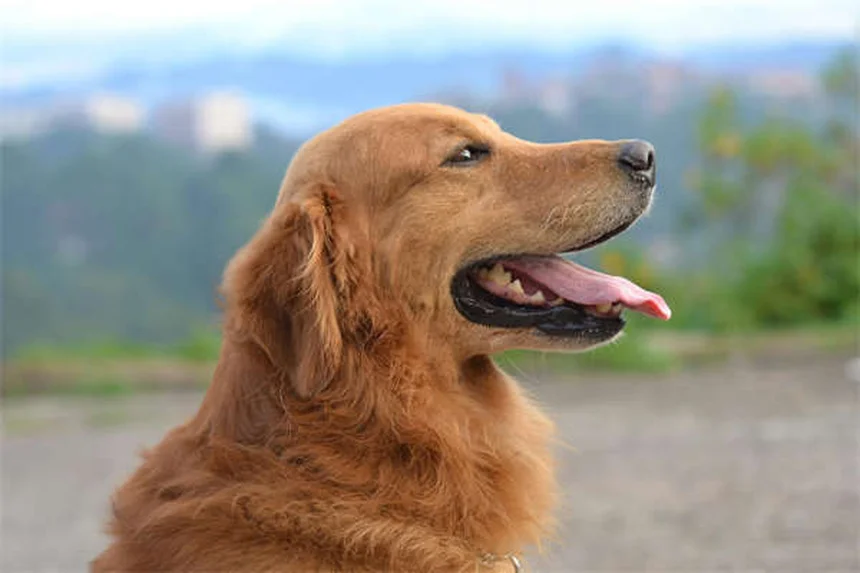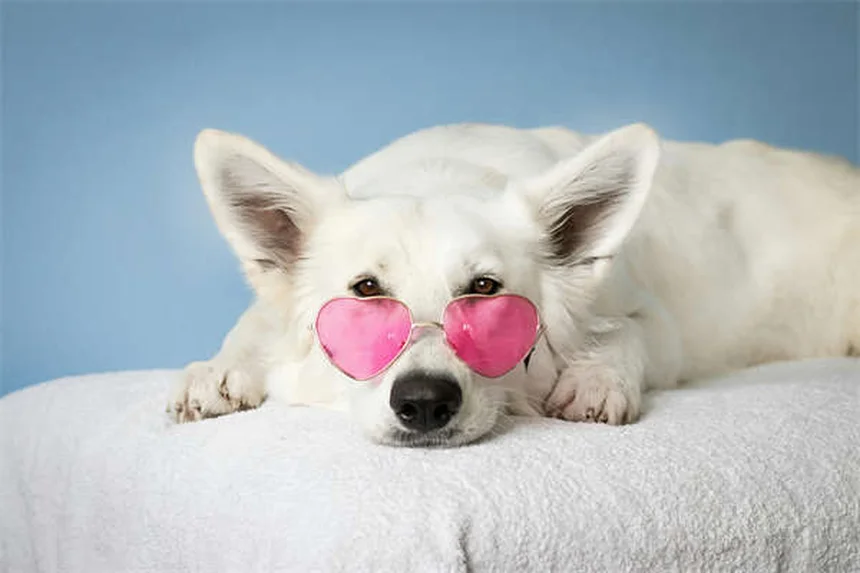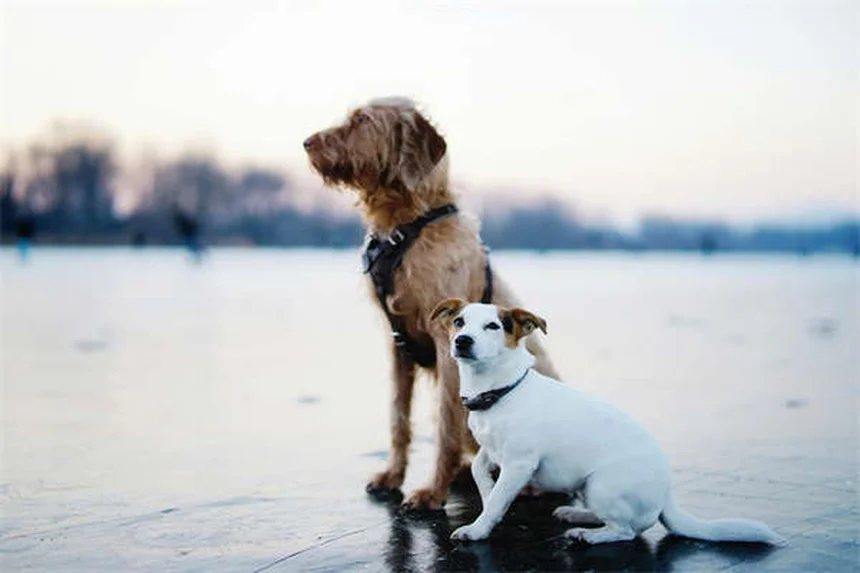How to Brush Your Puppy's Teeth: 5 Simple Steps for Healthy Dog Dental Care
How to brush your puppy's teeth? The answer is: Start early, go slow, and make it positive! As a dog owner myself, I can tell you that brushing your pup's teeth might seem daunting at first, but it's one of the best things you can do for their health. Did you know that 80% of dogs develop dental disease by age 3? That's why we need to start puppy dental care early - ideally when they're between 8-12 weeks old. The good news? With the right approach, you can turn toothbrushing into a bonding experience your pup actually enjoys. I'll walk you through everything you need to know, from choosing the right tools to creating a stress-free routine that works for both of you.
E.g. :How to Remove a Tick from Your Dog Safely in 5 Easy Steps
- 1、Why Puppy Dental Care Matters More Than You Think
- 2、Gearing Up For Puppy Dental Success
- 3、The Puppy Toothbrushing Bootcamp
- 4、Making Dental Care A Lifestyle
- 5、When To Call In The Pros
- 6、Your Puppy's Dental Future Starts Today
- 7、The Hidden Connection Between Dental Health and Overall Wellness
- 8、The Psychology Behind Successful Toothbrushing
- 9、Nutrition's Role in Dental Health
- 10、Senior Dog Dental Care: Special Considerations
- 11、Making Dental Care a Community Effort
- 12、FAQs
Why Puppy Dental Care Matters More Than You Think
Hey there fellow dog lover! Did you know that 80% of dogs develop dental disease by age 3? That's like 4 out of every 5 pups walking around with tooth troubles! Now, I don't know about you, but that statistic really got my attention.
Imagine going three years without brushing your teeth - yuck! Our furry friends deserve better, and the good news is we can help prevent this with some simple daily care.
The Shocking Truth About Doggy Dental Health
Let me tell you about my neighbor's golden retriever, Max. At just 2 years old, he needed $1,200 worth of dental work because his owner thought "dogs clean their own teeth." Big mistake! Dogs might chew on sticks, but that's like us eating apples and calling it dental care.
Here's a quick comparison of dental problems in dogs vs humans:
| Issue | Dogs | Humans |
|---|---|---|
| Plaque buildup | Forms in 24-48 hours | Forms in 24-72 hours |
| Periodontal disease | 80% affected by age 3 | 47% affected by age 30 |
| Tooth loss | Common by age 10 | Rare before age 50 |
Your Puppy's Secret Weapon Against Dental Disease
Want to know the single most effective way to protect your pup's pearly whites? Daily brushing! I know, I know - it sounds like a chore, but trust me, it's easier than you think once you get the hang of it.
Think about this: would you rather spend 60 seconds a day brushing, or thousands of dollars at the vet later? That's what I thought! Now let's get into the fun stuff - how to actually do this.
Gearing Up For Puppy Dental Success
 Photos provided by pixabay
Photos provided by pixabay
Choosing Your Toothbrush Arsenal
You've got options here, friend! You can use:
- A soft children's toothbrush (the cheap route)
- A fancy dog toothbrush with angled head (my personal favorite)
- Finger brushes for nervous pups
Here's a pro tip: the toothbrush color matters! Pick one that contrasts with your dog's fur so you can see what you're doing. I learned this the hard way when I couldn't tell where the brush was in my black lab's mouth!
The Great Toothpaste Debate
Now, here's a question: Do you really need dog toothpaste? The answer might surprise you. While water and a brush do the mechanical cleaning, toothpaste adds flavor that makes the experience better for your pup.
If you go the toothpaste route (I recommend it), look for the VOHC seal. These are the only products actually proven to work. My pup goes crazy for the poultry flavor - it's like dessert time for him!
The Puppy Toothbrushing Bootcamp
Week 1: Mouth Handling 101
Start slow, like really slow. Day 1 might just be touching your pup's muzzle for 2 seconds followed by treats. By day 7, you should be able to lift lips and touch gums.
Remember: this isn't a race! My first puppy took 3 weeks just to accept mouth touching. Now he thinks toothbrushing means treat time - total win!
 Photos provided by pixabay
Photos provided by pixabay
Choosing Your Toothbrush Arsenal
First, let them lick toothpaste off your finger. Then try smearing some on their teeth. Finally, introduce the brush without toothpaste.
Pro tip: do this after exercise when they're tired. A hyper puppy + toothbrush = chew toy disaster! I may have lost 3 brushes this way before learning my lesson.
Week 3: Putting It All Together
Now we brush! Start with just the front teeth for 5 seconds per side. Gradually work up to 30 seconds all around.
Here's a question: Why focus on the back teeth? Because that's where 90% of problems start! Those molars trap food like nobody's business. But don't push too hard - we want this to stay positive.
Making Dental Care A Lifestyle
Creating A Routine That Sticks
Pair brushing with something your dog already loves. Maybe it's right before dinner or after morning cuddles. My current routine? Brush teeth, then immediate walk. My dog now brings me the toothbrush when he wants to go out!
Consistency is key. Even 4-5 times a week makes a huge difference. Miss a day? No biggie, just get back on track tomorrow.
 Photos provided by pixabay
Photos provided by pixabay
Choosing Your Toothbrush Arsenal
While brushing is best, these helpers can boost your efforts:
- VOHC approved dental chews (great for busy days)
- Dental water additives (sneaky easy prevention)
- Rubber chew toys with nubs (fun cleaning action)
But remember: nothing replaces actual brushing. Think of these like mouthwash for humans - helpful but not the main event.
When To Call In The Pros
Vet Visits & Professional Cleanings
Even with perfect home care, your pup needs professional cleanings. Small breeds should start at 1 year, larger dogs around 3 years.
Warning: avoid "anesthesia-free" cleanings. These are basically doggy spa treatments that don't address problems below the gumline. It's like only cleaning the front of your teeth!
Spotting Trouble Early
Watch for these red flags:
- Bad breath (not just normal doggy smell)
- Dropping food while eating
- Pawing at the mouth
- Red or bleeding gums
Caught early, most dental issues are simple fixes. Wait too long and it becomes major surgery. Ask me how I know - my rescue dog needed 8 teeth pulled because his first owner ignored the signs!
Your Puppy's Dental Future Starts Today
Look, I get it - adding one more thing to your puppy care routine seems overwhelming. But here's the truth: spending one minute a day on brushing can add years to your dog's life and save you thousands in vet bills.
Start slow, be patient, and remember - every great dog owner was once a beginner. Your puppy will thank you with kisses (and hopefully better breath)! Now go grab that toothbrush and start making dental health fun!
The Hidden Connection Between Dental Health and Overall Wellness
You might not realize this, but your puppy's mouth health affects way more than just their teeth! Bacteria from gum disease can enter the bloodstream and cause problems in the heart, liver, and kidneys. That's right - ignoring those pearly whites could lead to serious internal issues down the road.
Think about it like this: would you ignore a cut on your hand that kept getting infected? Of course not! Dental disease works the same way - it's an open door for bacteria to wreak havoc throughout your pup's body.
How Bad Breath Tells a Bigger Story
That "doggy breath" everyone jokes about? It's actually a warning sign! While all dogs have some odor, truly foul breath often means trouble brewing below the gumline.
Here's something fascinating - researchers found that dogs with severe dental disease have higher levels of inflammatory markers throughout their bodies. This chronic inflammation can contribute to arthritis, diabetes, and even cognitive decline as they age. The good news? Regular brushing reduces these risks dramatically!
The Breed-Specific Dental Challenges You Should Know
Not all dogs face equal dental risks. Small breeds like Chihuahuas and Yorkies often have crowded teeth that trap food, while brachycephalic breeds (those cute smush-faced pups) frequently have misaligned bites that accelerate wear.
Check out these breed-specific dental quirks:
| Breed Type | Common Dental Issue | Special Care Needed |
|---|---|---|
| Small/Toy Breeds | Crowded teeth | Daily brushing + professional cleanings every 6-12 months |
| Brachycephalic | Misaligned bite | Soft brushes + frequent vet checks |
| Large Breeds | Tooth fractures | Avoid hard chew toys + regular inspections |
The Psychology Behind Successful Toothbrushing
Turning Chore Into Playtime
Here's a secret: your attitude determines 90% of brushing success. If you approach it like a medical procedure, your pup will resist. But make it fun? You've got a willing participant!
I turned my anxious terrier into a brushing champ by creating a silly song ("Brushy Brushy Time!") and using peanut butter flavored toothpaste. Now he wags his tail when he sees the toothbrush!
The Power of Positive Association
Ever wonder why some dogs love nail trims while others panic? It's all about early experiences. The same applies to dental care - start positive associations young and you'll set your pup up for lifetime success.
Try this: keep toothbrush sessions short and always end on a high note with their favorite game or treat. My golden rule? Never force a scared puppy - take a step back and try again tomorrow with more patience.
Nutrition's Role in Dental Health
Beyond Kibble: Food That Cleans Teeth
Here's a question: Can diet really replace brushing? While nothing beats mechanical cleaning, certain foods do help! Look for kibble with a textured surface or dental-specific formulas that scrub as they chew.
Raw meaty bones (under supervision) can provide natural cleaning, but avoid cooked bones which splinter dangerously. My vet recommends frozen carrots as a safe, crunchy alternative that many dogs adore.
The Sugar Trap in Dog Treats
You'd never give your kid candy before bed, so why do we give dogs sugary treats? Many commercial dog biscuits contain molasses, corn syrup, or other sweeteners that feed plaque bacteria.
Next time you're shopping, check labels for hidden sugars. Better yet, try these tooth-friendly alternatives:
- Freeze-dried liver (high value but low sugar)
- Dental chews with the VOHC seal
- Frozen green beans (my pup's favorite crunchy snack)
Senior Dog Dental Care: Special Considerations
Adapting Your Approach With Age
As dogs enter their golden years, dental needs change. Arthritis might make chewing painful, while medications can cause dry mouth that accelerates decay.
For my 12-year-old lab, I switched to an extra-soft brush and water additive when brushing became uncomfortable for him. The key? Watch for subtle signs of discomfort and adjust accordingly.
The Link Between Dental Pain and Behavior Changes
Ever known a sweet dog who suddenly got grumpy? Dental pain could be the culprit! Many "behavior problems" in older dogs actually stem from untreated mouth pain.
Watch for these often-missed signs:
- Reluctance to play with favorite toys
- Head-shyness when previously tolerant
- Eating on one side of the mouth
- Sudden pickiness with food textures
Making Dental Care a Community Effort
Educating Friends and Family
Here's something powerful: when you prioritize your dog's dental health, you inspire others! I've converted three neighbors to regular brushers just by sharing my routine at the dog park.
Next time someone compliments your pup's bright smile, share your tips! Maybe offer to demonstrate your technique - many people simply don't know how to brush properly.
Partnering With Your Vet Team
Your veterinarian is your greatest ally in dental health. Ask for a quick mouth check at every visit, and don't hesitate to request demonstrations of proper brushing technique.
Most clinics offer puppy dental packages that include free toothbrushes and training sessions - take advantage of these! I saved $300 on my pup's first cleaning by completing our vet's dental wellness program.
E.g. :How To Brush Your Puppy's Teeth | PetMD
FAQs
Q: When should I start brushing my puppy's teeth?
A: You should start brushing your puppy's teeth as early as possible - ideally between 8-12 weeks old. Puppies are more adaptable to new experiences during this critical socialization period. I recommend beginning with simple mouth handling exercises before introducing the toothbrush. Start by gently lifting your pup's lips and touching their gums with your finger. Reward them with praise and treats to create positive associations. Remember, the goal isn't perfect brushing right away - it's about helping your puppy feel comfortable with the process. Small, frequent sessions work best when they're this young.
Q: Do I really need special dog toothpaste?
A: While you can brush with just water, I highly recommend using dog-specific toothpaste. Here's why: human toothpaste contains ingredients like xylitol that are toxic to dogs, while dog toothpaste comes in flavors they love (like poultry or beef) that make the experience more enjoyable. The Veterinary Oral Health Council (VOHC) approves certain pet toothpastes that are proven effective. In my experience, using tasty toothpaste turns brushing from a chore into a treat time my puppy looks forward to. Just remember - the mechanical brushing action is what really cleans their teeth, so focus on that if your pup doesn't like toothpaste.
Q: How often should I brush my puppy's teeth?
A: For optimal puppy dental care, aim to brush daily. I know that sounds like a lot, but hear me out - plaque can start forming within 24 hours, and daily brushing is what makes the biggest difference in preventing dental disease. That said, if you can manage 4-5 times a week, you're still doing great. Consistency matters more than perfection. Pro tip: pair brushing with another daily routine (like after their morning walk) to help remember. Even my busiest clients find that once they establish the habit, it becomes just another quick part of their puppy care routine.
Q: My puppy hates toothbrushing - what should I do?
A: Don't worry - this is super common! First, go back to basics: try just letting them lick toothpaste off your finger for a few days. Then progress to rubbing their teeth with your toothpaste-covered finger before introducing the brush. Make sure you're using plenty of high-value treats and keeping sessions short (5-10 seconds at first). If they still resist, try different tools - some pups prefer finger brushes over traditional ones. The key is patience and making it positive. I've worked with many "difficult" cases, and with time, nearly all puppies learn to at least tolerate brushing when approached correctly.
Q: Are there alternatives to brushing my puppy's teeth?
A: While nothing replaces actual brushing, there are supplemental options. VOHC-approved dental chews, water additives, and special diets can help reduce plaque between brushings. However, these should be used alongside - not instead of - brushing. Think of them like mouthwash for humans: helpful but not the main cleaning method. In my practice, I recommend the "brushing +" approach: daily brushing when possible, supplemented with approved dental products on busy days. Just be wary of gimmicky products - stick to those with the VOHC seal for proven effectiveness.


